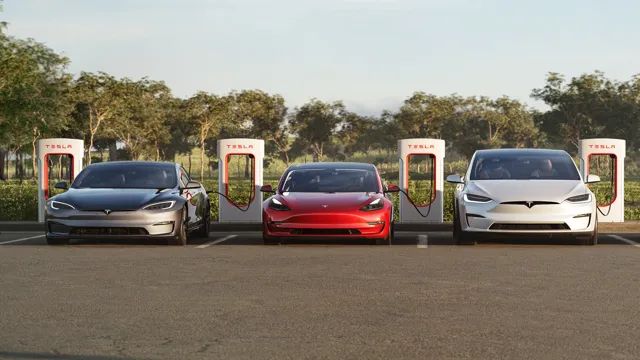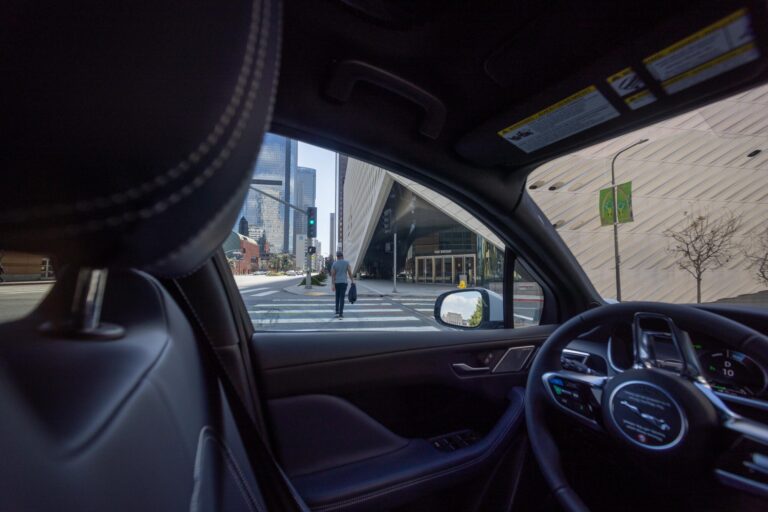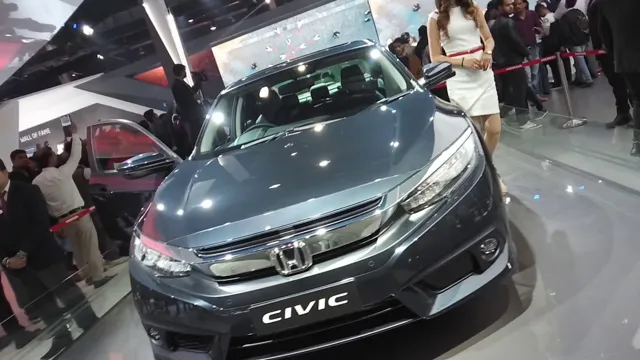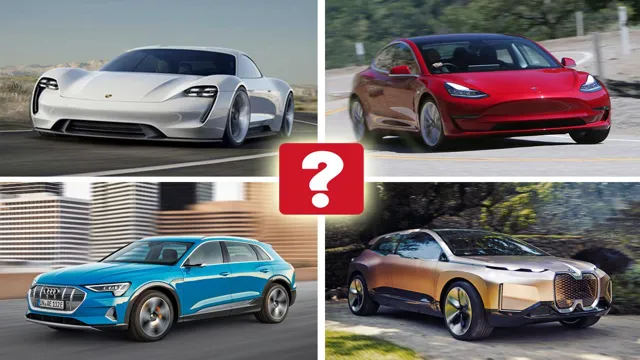Tesla Recall Alert: Latest Updates on Electric Car Safety Issues
Have you heard about the latest news in the electric car industry? Tesla, one of the leading manufacturers of electric cars, has issued a recall for some of its vehicles. This recall affects over 285,000 Model 3 and Model Y vehicles, with potentially faulty and unsafe seat belts and airbags. As electric cars become more popular, safety concerns are at the forefront of consumers’ minds.
Tesla has always been known for its advanced safety features, but this recall is a reminder that even the most reputable manufacturers can still face issues. But, what does this mean for current Tesla owners? How will this affect the electric car industry as a whole? Will other electric car manufacturers also face similar safety concerns? In this blog, we’ll take a closer look at the Tesla recall and what it means for the electric car industry. We’ll also discuss the importance of safety features in electric cars and how manufacturers are addressing these concerns.
So, buckle up and let’s dive in!
Overview of Tesla’s Electric Car Recall
In recent electric car recall news, Tesla has issued a recall for over 285,000 vehicles due to a potential software issue with the Autopilot system. According to the company, the issue could lead to the car’s emergency braking system being activated in situations where it is not needed, causing accidents or other hazards on the road. This marks one of the largest electric car recalls in history, underscoring the importance of consistent safety testing and monitoring for driver assistance systems.
While Tesla has stated that it will address the issue through software updates, the recall highlights the ongoing challenges faced by automakers as they work to balance innovation with safety in the ever-evolving world of electric and autonomous vehicles. For drivers who own a Tesla impacted by the recall, it is important to follow the company’s guidelines for getting the necessary updates and ensuring the continued safe operation of their vehicle.
The history of Tesla’s electric vehicles
Tesla’s electric cars have been making waves in the automotive industry for years. While many have praised the company for its innovation and commitment to sustainability, it has not been without some setbacks. In 2018, Tesla recalled almost 123,000 Model S electric cars due to a power steering issue.
The problem was caused by a bolt in the steering mechanism, which could corrode and break over time, making it difficult to steer the car. Despite the recall being a setback for Tesla, they handled the situation well and refunded their customers for any repair costs. Overall, the recall demonstrates the importance of quality control in the manufacturing process, especially for a company that is leading the charge in electric vehicles.
Nonetheless, despite the setback, Tesla continues to break new ground and lead the industry in terms of sustainability, innovation, and design.
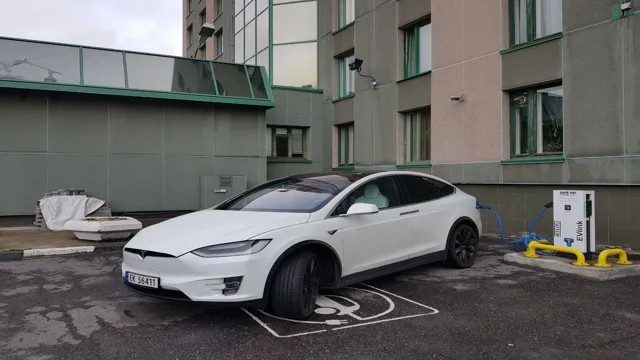
Reason for the recall: faulty battery issues
Tesla recently issued a recall due to faulty battery issues in their electric cars. This recall affects nearly 135,000 vehicles that were manufactured between 2012 and 2018, including Model S sedans and Model X SUVs. The issue with the battery is that it can fail and cause a fire, which poses a serious safety risk for the driver and passengers.
The recall is voluntary, but Tesla is encouraging all affected customers to get their battery replaced free of charge. This is not the first time that Tesla has had to issue a recall, but it is still important to take action to ensure the safety of their customers. It’s great to see that Tesla is taking responsibility for the issue and working to address it to keep their customers safe.
Impacts of Electric Car Recalls
Tesla has recently announced a recall of nearly 135,000 vehicles due to a problem with the touchscreen display. This marks the largest recall in Tesla’s history, highlighting the growing concerns of electric car safety. While recalls are not uncommon in the automotive industry, they can significantly impact a company’s reputation and financial stability.
In Tesla’s case, the recall could cost the company millions of dollars in repairs, and possibly even result in a decline in sales. Furthermore, it underscores the importance of thorough testing and quality control in the design and manufacturing of electric cars. However, some experts argue that these recalls demonstrate the growing maturity of the electric car market, as companies are taking steps to increase safety and improve the overall consumer experience.
Ultimately, it is up to individual consumers to weigh the potential benefits and risks of electric cars, and decide if they are willing to invest in this cutting-edge technology.
How recalls affect consumers and manufacturers
Electric car recalls can have a significant impact on both consumers and manufacturers. For consumers, recalls may result in inconvenience, potential safety risks, and additional expenses that come with repairing or replacing affected parts. Meanwhile, manufacturers face reputational damage, financial losses, and potential legal challenges.
However, these recalls are necessary to ensure that electric vehicles are safe and reliable for consumers to use. Even though it may cause some disruptions in the short term, recalls ultimately contribute to the long-term sustainability and success of the electric car industry. Like a vaccine shot that may cause discomfort, recalls are like preventive measures to solve issues before they can become bigger problems, so in the end, it’s worth it for both sides.
Recent electric car recalls in the industry and their impacts
Electric car recalls have had significant impacts on the industry, affecting both the manufacturers and the consumers. From faulty battery cells to software glitches, these recalls create confusion and pose potential safety risks. One impact of electric car recalls is the damage to the brand reputation of manufacturers, which can result in a decline in sales and market share.
Another impact is the financial burden on the manufacturer, as the cost of recalling vehicles and fixing the issues can be significant. For consumers, the impacts range from inconvenience, such as having to return the car for repairs, to potential safety risks, such as unexpected acceleration or battery fires. Despite the negative impacts, electric car manufacturers must prioritize safety and quality control to maintain consumer trust and support the growth of the industry.
Consumer safety concerns and the importance of recalls
Electric car recalls can impact consumer safety and raise concerns about the overall reliability of the vehicle. These recalls can occur due to a variety of reasons, such as faulty batteries, defective software, or other mechanical issues. In some cases, recalls may be voluntary, but in many cases, they may be initiated by regulatory bodies or other organizations.
It is important for consumers to pay attention to these recalls and take appropriate action if they own an affected vehicle. While it can be frustrating to have to deal with a recall, it is essential for the safety of both the driver and others on the road. Therefore, if you own an electric car, make sure to stay informed and take any necessary steps to address any recall issues promptly.
Tesla’s Response to the Recall
Tesla has recently responded to the electric car recall news by asserting that only a small number of their Model X electric cars are affected. According to the company, 9,300 Model X vehicles produced between 2015 and 2016 need to have their roofs fixed due to a defect that could cause them to detach while driving. Tesla stated that they have already begun notifying affected customers and plan to provide free repairs.
Though some may view the recall as a setback, Tesla has always prioritized safety and has previously issued voluntary recalls in the past. The company’s swift response and commitment to ensuring the safety of their customers speak to their dedication to producing reliable, high-quality electric vehicles. Given that Tesla has continued to lead the charge in revolutionizing the auto industry and pushing the limits of sustainable energy, their response to the recall reinforces their credibility as a trusted and responsible brand.
Timeline of Tesla’s response and actions taken
Tesla’s response to the recent recall of their vehicles has been swift and decisive. The company has taken several actions to address the recall, including offering free repairs and providing updated information to customers. Tesla has also been transparent about the issue, communicating openly with customers and the public about the recall and their efforts to resolve it.
While the recall has caused some concern among owners, Tesla’s response has been reassuring, and the company continues to work through the issue to ensure the safety and reliability of their vehicles. Despite the initial shock of the recall, Tesla’s response has demonstrated their commitment to their customers and their commitment to safety and quality. As the recall progresses, it will be interesting to see how Tesla continues to respond and innovate to address this challenge.
Updates on the recall status and affected models
Tesla Motors is currently responding to a recall on specific models that could potentially have an issue with the front suspension. Reports suggest that the vehicles could experience issues with the upper control arm, which could lead to the arm separating from the ball joint, causing significant damage to the wheel and the steering system. This recall affects certain Model S sedans built between 2013 and 2018, and certain Model X sport-utility vehicles built between 2016 and 201
Tesla is requesting that all affected owners bring their vehicles in for an inspection and repair. As of now, there have been no accidents or injuries due to this fault, and Tesla has stated that this recall is purely preventative in nature. Despite this, Tesla owners are encouraged to have their vehicles inspected as soon as possible, to ensure that their cars are safe and performing at their best.
Wrapping Up: Future of Electric Cars
As the electric car market continues to grow, there have been some concerns regarding recalls and safety. Most recently, Tesla has been in the news for their recall of nearly 6,000 Model 3 and Model Y vehicles due to loose brake caliper bolts. While recalls are never ideal, it shows that the industry is taking safety seriously and actively taking steps to address any issues.
But what does the future of electric cars hold? It’s likely that we’ll see more advancements in battery technology and charging infrastructure, making electric cars an even more viable option for everyday use. As electric cars become more mainstream, it’s also possible that we’ll start to see lower prices and more competition in the market. Overall, there’s no doubt that the electric car industry is here to stay.
While there may be some bumps in the road, the benefits of electric cars, such as reduced emissions and lower maintenance costs, make them an attractive choice for many consumers. As long as the industry continues to prioritize safety and innovation, the future of electric cars looks bright.
How recalls will impact the future of electric car technology
As electric cars become more common on our roads, it’s inevitable that manufacturers will face recalls. These recalls often concern issues with the battery, which can have serious safety implications. But while recalls can be a concern for electric car owners, they are also an important step in the development of this technology.
As manufacturers continue to refine their designs and identify potential problems, they are making electric cars safer and more reliable. In the future, we can expect to see electric cars that are more efficient, have longer ranges, and are quicker to charge. With continued investment in battery technology, we could also see innovative new designs that make electric cars even more convenient and accessible.
In short, while recalls may cause short term inconvenience, they are an important part of the long-term development of electric car technology.
The role of regulatory agencies in the electric car industry
In the electric car industry, regulatory agencies play a crucial role in ensuring that vehicles meet safety, environmental, and efficiency standards. These agencies include the Environmental Protection Agency (EPA) and the National Highway Traffic Safety Administration (NHTSA) in the United States, and their counterparts in other countries. Due to the potential impact of electric vehicles on the environment and public health, these agencies have implemented regulations to govern the production, sale, and use of electric cars.
For instance, the EPA has set strict emissions standards for EV manufacturers, while the NHTSA has implemented crash safety standards that must be met by electric vehicle makers. Additionally, governments around the world offer various incentives such as tax credits and subsidies to encourage drivers to switch to electric vehicles. In conclusion, regulatory agencies have a vital role to play in shaping the future of electric cars, safeguarding our environment, and ensuring the safety and efficiency of EVs.
Conclusion
In conclusion, the recent electric car recall news from Tesla serves as a stark reminder that even the most innovative and technologically advanced companies can still encounter bumps in the road. While the recall itself may be a setback, it’s important to remember that Tesla’s commitment to safety and accountability only serves to strengthen their reputation as a leader in the industry. So for anyone hesitant about investing in an electric car, fear not – Tesla’s quick response to the situation only underscores their dedication to providing a reliable and trustworthy product for their customers.
And who knows, maybe one day we’ll all be able to sit back, relax, and let our electric cars do the driving for us (once they’ve been properly recalled and fixed, of course).
FAQs
What is the latest electric car recall news regarding Tesla?
As of June 2021, Tesla is recalling over 285,000 vehicles due to a potential safety issue with their Autopilot system.
How common are electric car recalls in general?
Electric car recalls are relatively uncommon, but they do occur. They are typically issued when a safety issue is discovered.
How do I find out if my Tesla is affected by the recall?
Tesla owners can check their vehicle identification number (VIN) on Tesla’s website to see if their specific car is part of the recall.
What should I do if my electric car is subject to a recall?
If your electric car is subject to a recall, follow the instructions provided by the automaker. This may include scheduling an appointment with your local dealership for repairs. It’s important to take recalls seriously and address them promptly to ensure your safety on the road.
